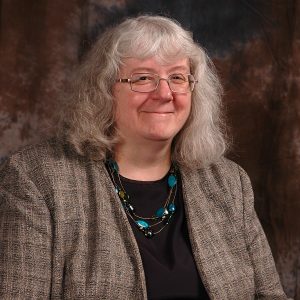Home: Highland Village, Texas
UT Dallas Degree: BS – Economics, 1990; MPA, 1992.
Profession: Director, Compensation and Benefits at L-3 Communications, Electronic Systems Segment and Link Simulation & Training Division.
I’m responsible for surveying the labor market and analyzing our workforce to determine if the pay rates we provide to our employees are market competitive. Beyond just base pay, I look at trends in incentive compensation and total employee rewards. I am also the primary interface with our Shared Services payroll organization, helping to ensure that employees are paid correctly each payroll. I have had the tremendous honor, too, to support a very talented technical and scientific workforce. They challenge me and keep me thinking all the time.
When I moved to Dallas in 1985, I started going to Dallas County Community College as soon as I could. I was working for Standard Oil when they were purchased by British Petroleum, and they moved the Dallas operations to Houston. That was my chance to go to school full time and complete my Bachelor’s degree. That was in 1988, and UT-Dallas only admitted upper-division. I had already fallen in love with Economics so it was an easy decision. When I completed my BS in 1990, I received a referral from a professor to a temporary position at the Super Collider, and was there for about 4 years. I joined Hughes Training, a division of Hughes Aircraft in 1994. In 1997, Hughes Aircraft was purchased by Raytheon, and in 2000, Raytheon sold the simulation & training business I work with now to L-3 Communications.
I never thought of myself as a “numbers” person. I took courses in statistics and econometrics, and found it intriguing. When I was in school, computers were just becoming common, and I made sure I knew how to use the analytical software we used in my Master’s program. I don’t do much programming, but it helped me learn to think in an organized, rational manner, and that has made learning more at work the most natural thing I could do.
I had fantastic professors. The other students were interesting, came from a variety of backgrounds, and made the courses interesting.
